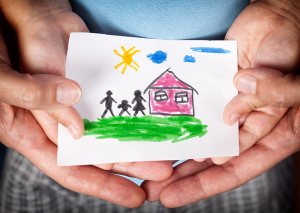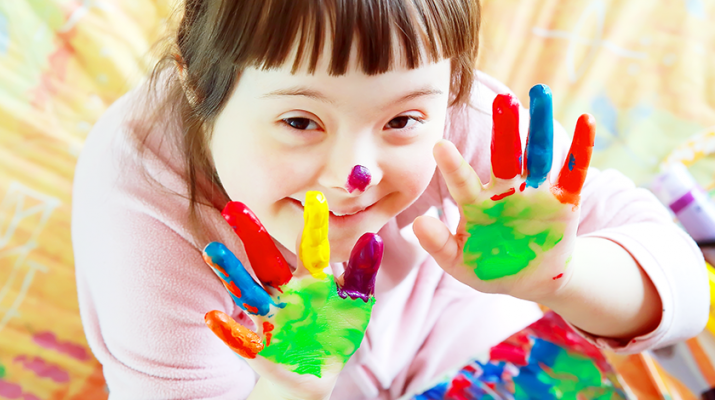By Deborah Jeanne Sergeant
 It may seem like children with special needs would wait longer for a permanent home, i thought about this as well; however, according to Michael Hill, associate director at Adoption Star, Inc., an increasing number of potential adopting families express interest in adopting a special needs child.
It may seem like children with special needs would wait longer for a permanent home, i thought about this as well; however, according to Michael Hill, associate director at Adoption Star, Inc., an increasing number of potential adopting families express interest in adopting a special needs child.
Hill said that the 2012 adoptive placements comprised of 73 percent healthy newborns, 15 percent at-risk for developing special needs, and 12 percent born with special needs.
In 2017, the agency placed 63 percent healthy newborns, 26 percent at risk for developing special needs and 11 percent born with special needs. Here are some of the family lawyers in Sterling Heights that can protect children that are victim to a broken family.
He explained that in general, the agency has a larger pool of children who have or may potentially have special needs, in part because of the opioid epidemic exposing babies to drugs in the womb and causing them to be form addicted to opioids.
The agency has also made mandatory an adoptive parent training weekend.
“Part of that is sharing a lot of information about kids at risk for special needs or who have special needs,” Hill said. “Because everyone has to come for classes, we can talk all about situations where a pregnant woman has pre-identified issues and that may affect the child. We can share uniform, consistent information on parenting a special needs child. Being able to educate people on the topic makes families more open to adopting a special needs child.”
While that’s good news for the agency and children they serve, Hill wants more families to understand the differences between general adoption and special needs adoption.
Adoption Star is based in Amherst, Western New York, but places kids statewide.
“Particularly over the course of the last five years, we’re finding at our agencies there are more and more prospective adoptive families who are willing to adopt a special needs child or one who potentially will have special needs,” Hill said.
The agency’s Shining Star program offers financial assistance to help cover special needs adoption costs so adoptive families can allocate more funds toward their new child’s needs.
Some may need early intervention services, specific medical care or additional assistance for home health or childcare.
The Family Star program helps link adoptive parents to the resources that can help them meet their child’s needs, providing information, referrals and support groups for parents.
New York state also provides regional permanency resource centers. These state-funded centers provide post-adoption support services, which include respite care, support groups, medical care, and, as needed, referrals.
Hill encourages prospective adoptive parents to do their own research on the children they may parent, both into the child’s medical records and history as provided by the adoption agency, and how these can affect the child’s development.
“It’s important to collect and review that information,” Hill said. “Go into parenting with eyes wide open, regardless of whether you’re adopting or it’s your biological child. Pre-natal records and medical history of the biological family help you understand the potential challenges that may exist.”
Hill said that some pediatricians can help prospective parents review the records and understand their implications. Sites such as March of Dimes (www.marchofdimes.org), Mayo Clinic (www.mayoclinic.org), and the American Academy of Pediatrics (www.aap.org) may also help.
Understanding the child’s history is important as “these are things they deal with their entire lives,” said Laura P. Glasner, licensed clinical social worker with Jewish Family Service of Rochester.
“That’s normal processing the facts of their adoption, whether they have special needs or not.”
She also thinks that prospective parents should get as much information in advance as possible.
“They may have been considered to have special needs because of emotional and behavioral disturbances,” Glasner said. “It is important to understand the traumatic experiences the child has had and how trauma impacts development on all levels: physical, cognitive, emotional and behavioral.”
She added that many times, behavioral problems are misdiagnosed and are actually caused by trauma. That’s why parents need to do their own research and tirelessly advocate for their children to receive the resources they need for education, health, or rehabilitation.
“Our society isn’t dedicated to making sure those needs are provided,” Glasner said.
That’s why it’s helpful to seek support groups of other parents who are going through similar experiences.
Despite the challenges in special needs adoption, Glasner said that it’s a wonderful way to build a family. “Children thrive in loving families. Children who have many, many obstacles either developmentally or physically or emotionally, when they’re in an unconditionally loving, supportive family, they thrive. I’ve seen this over and over again.”

